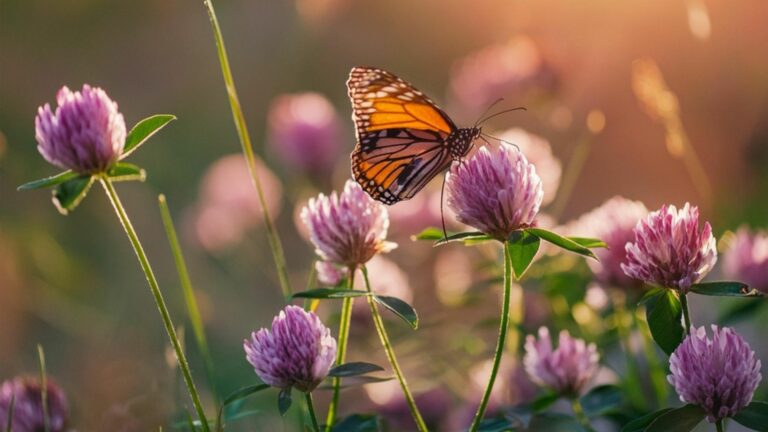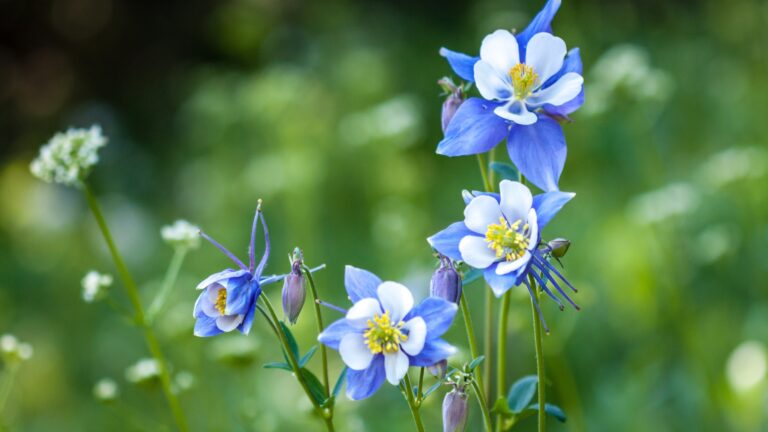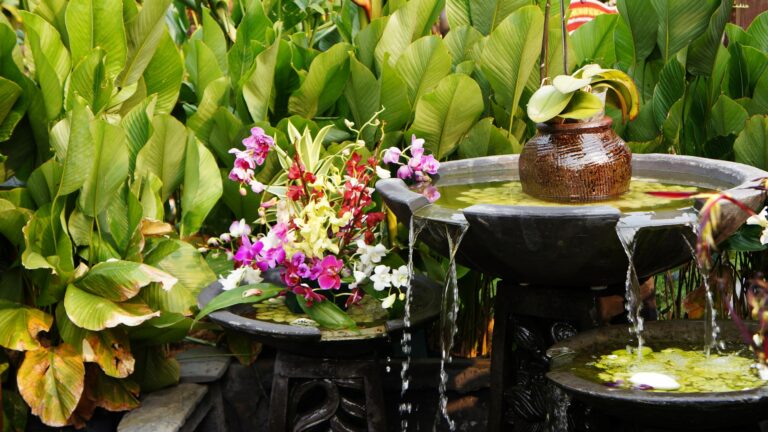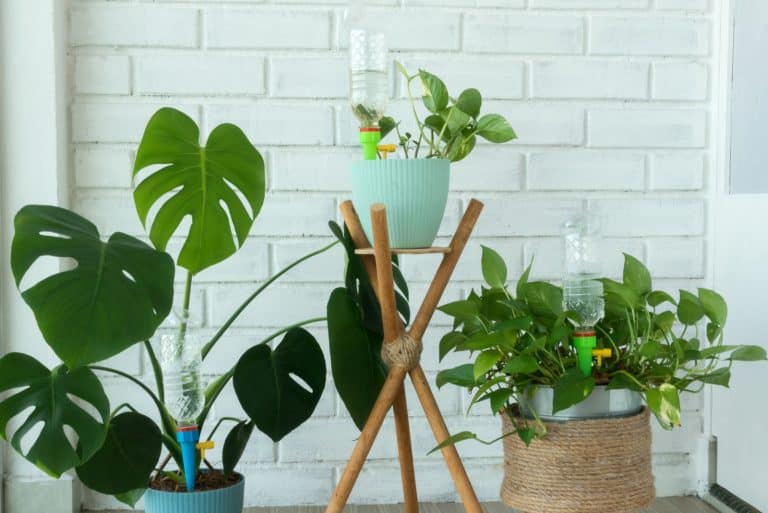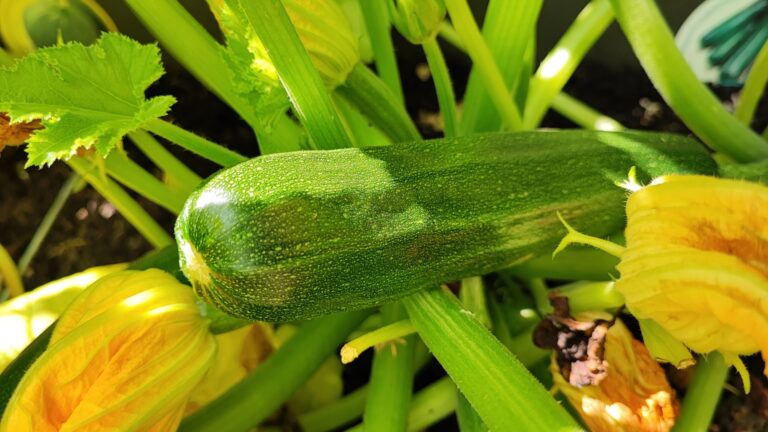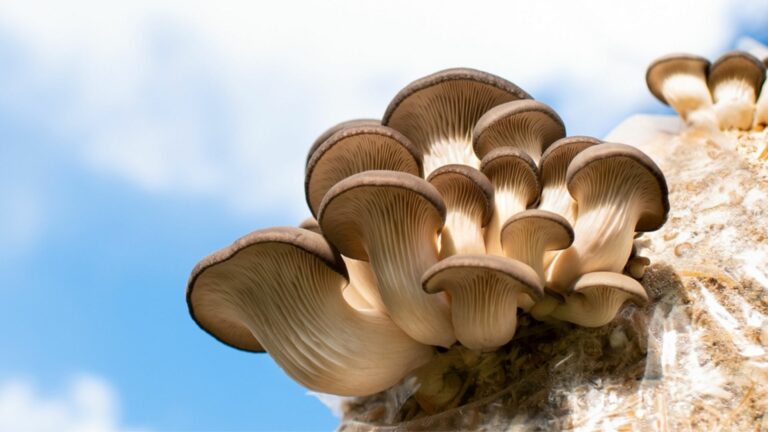Clever Ways To Use Rain Barrels In Georgia Gardens
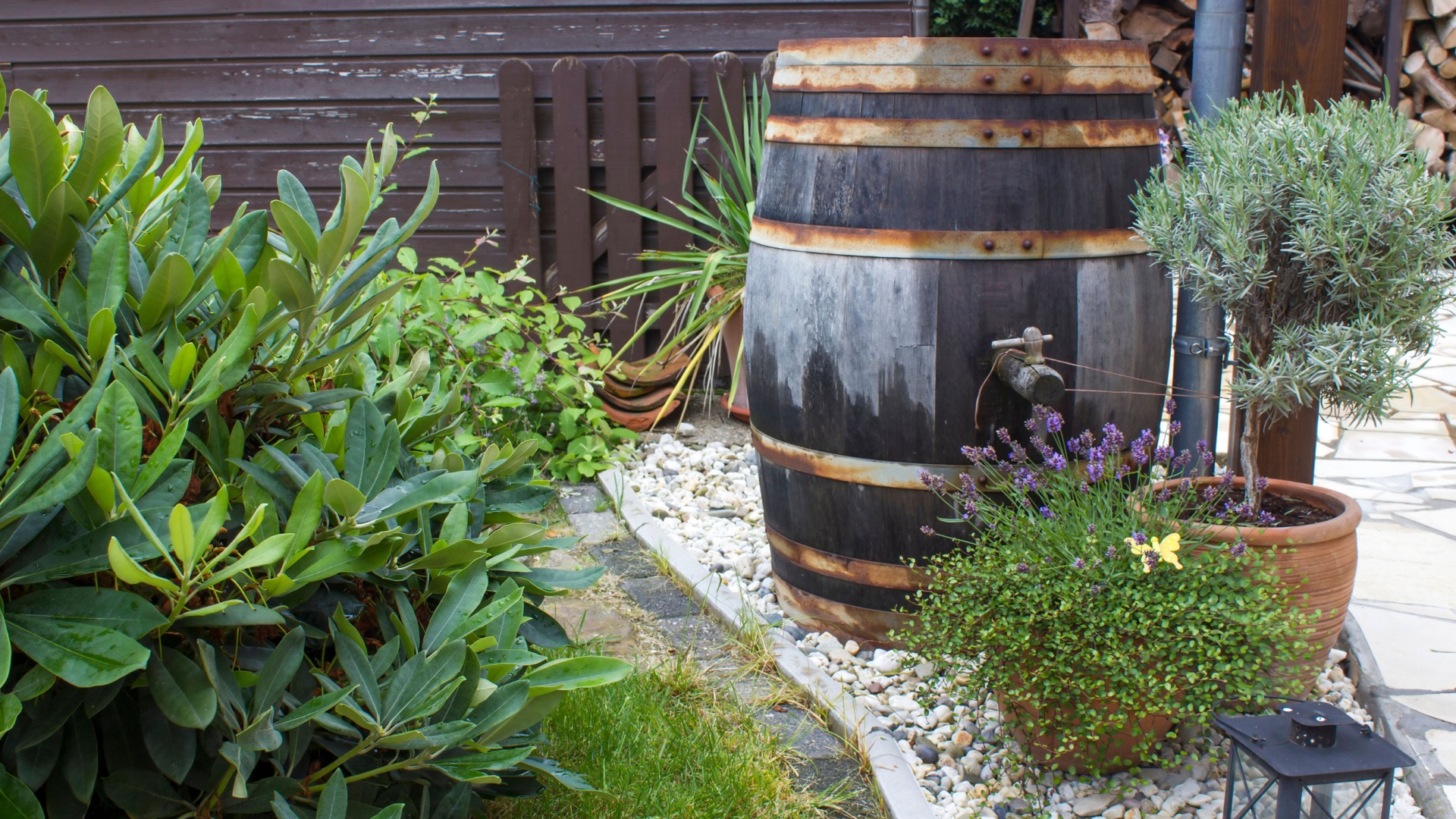
That rain barrel sitting in the corner can do more than just catch runoff. In Georgia gardens, it’s a secret weapon for saving water, cutting costs, and keeping plants happy through dry spells.
With a few clever tweaks, you can use that stored rainwater to power up your garden game—from feeding veggies to refreshing flower beds and more. It’s simple, smart, and surprisingly fun.
1. Create A Waterfall Feature

Transform your garden into a peaceful retreat by connecting multiple rain barrels at different heights. The collected water can cascade from one barrel to another, creating a soothing waterfall sound that masks traffic noise.
Birds and beneficial insects will be drawn to this water feature, increasing the biodiversity in your garden. Just be sure to cover the top barrel with mesh to prevent mosquitoes from breeding.
2. Power A Drip Irrigation System
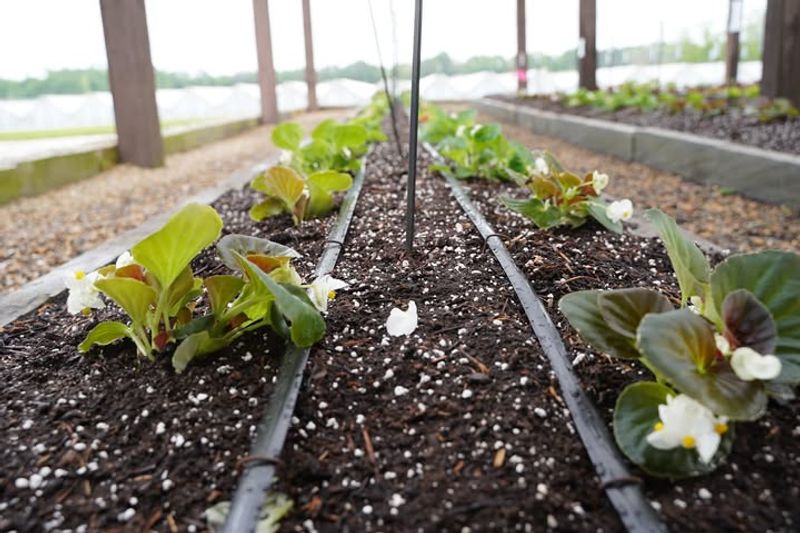
Gravity becomes your friend when you elevate a rain barrel on a sturdy platform. The water pressure generated can power a simple drip irrigation system throughout your vegetable garden without using electricity.
Connect a soaker hose to the spigot and snake it through your garden beds. Georgia’s heat-loving vegetables like tomatoes and peppers will receive consistent moisture exactly where needed, reducing water waste and fungal diseases.
3. Wash Garden Tools
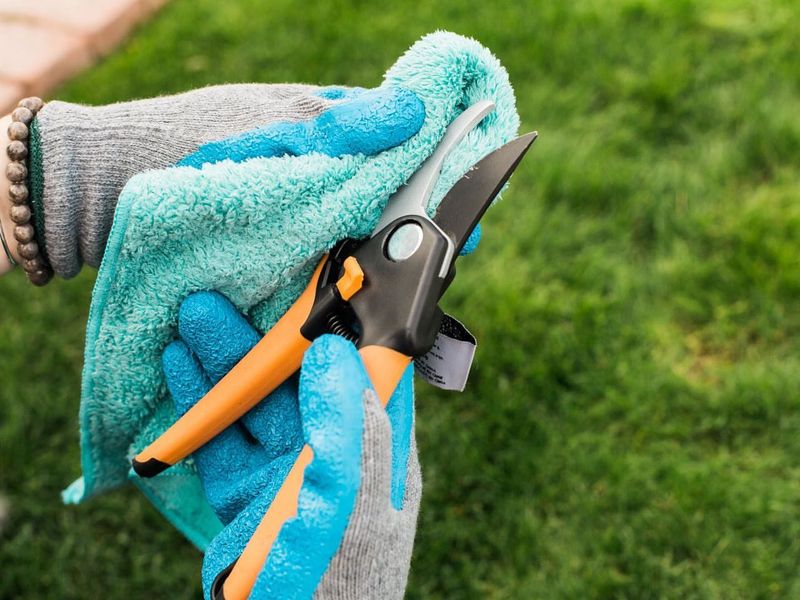
Keep a dedicated rain barrel near your tool shed for cleaning muddy garden implements. The soft rainwater won’t leave mineral deposits on your precious tools like tap water often does.
Add a simple basin beneath the spigot where you can rinse off trowels, pruners, and gloves after a day of digging in Georgia’s clay soil. This practice extends the life of your tools and keeps harmful chemicals out of your garden beds.
4. Mix Organic Fertilizers
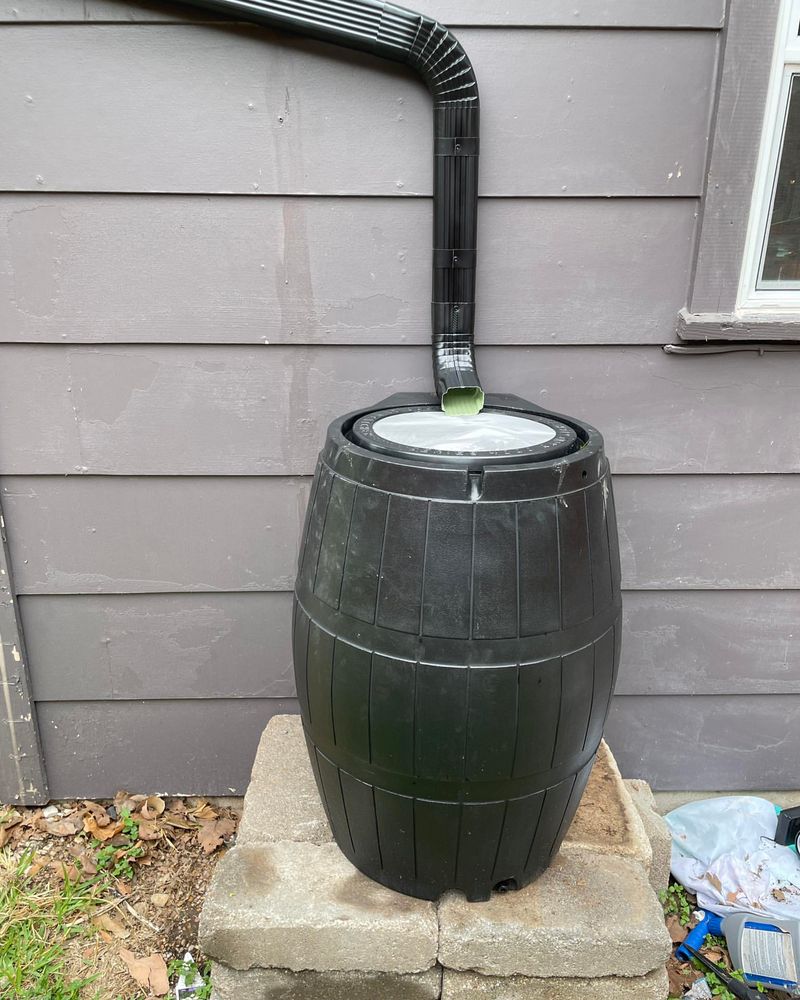
Rainwater makes an excellent base for organic fertilizer solutions. Its neutral pH won’t interfere with your carefully balanced nutrients like chlorinated tap water might.
Fill a watering can from your rain barrel and mix in compost tea, fish emulsion, or seaweed extract. Georgia’s long growing season means plants get hungry, and this rainwater-nutrient cocktail provides exactly what they need without harsh chemicals.
5. Build A Rain Barrel Bench
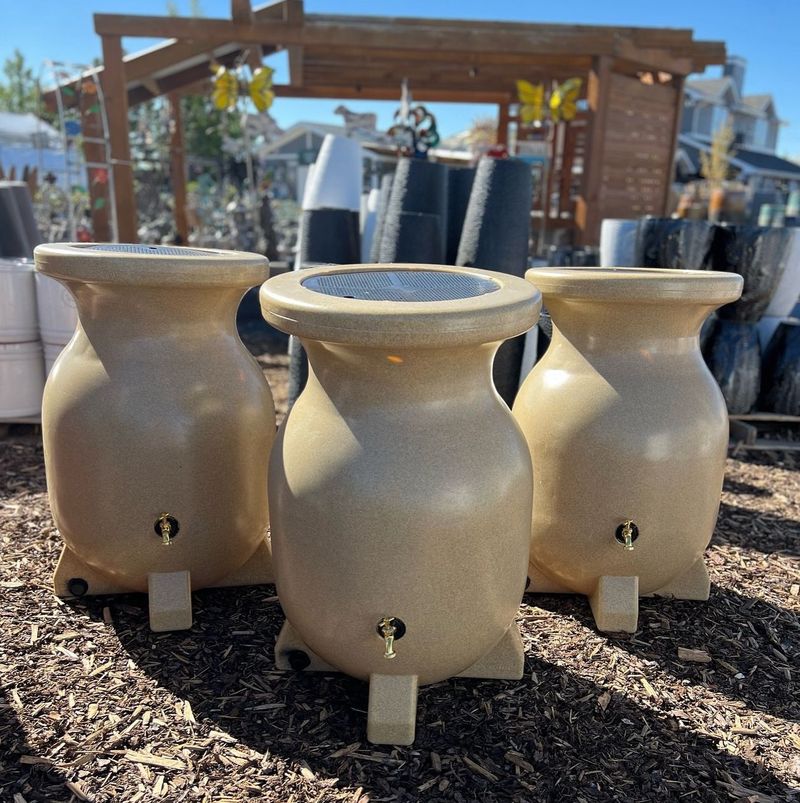
Maximize your patio space by constructing a bench that conceals rain barrels underneath. The flat top provides seating while the barrels collect water from nearby downspouts.
Georgia’s afternoon thunderstorms can quickly fill these hidden reservoirs. Add a small pump with a hose attachment, and you’ll have easy access to water for nearby container plants while enjoying a practical place to sit during warm evenings.
6. Supply A Bird Bath Station
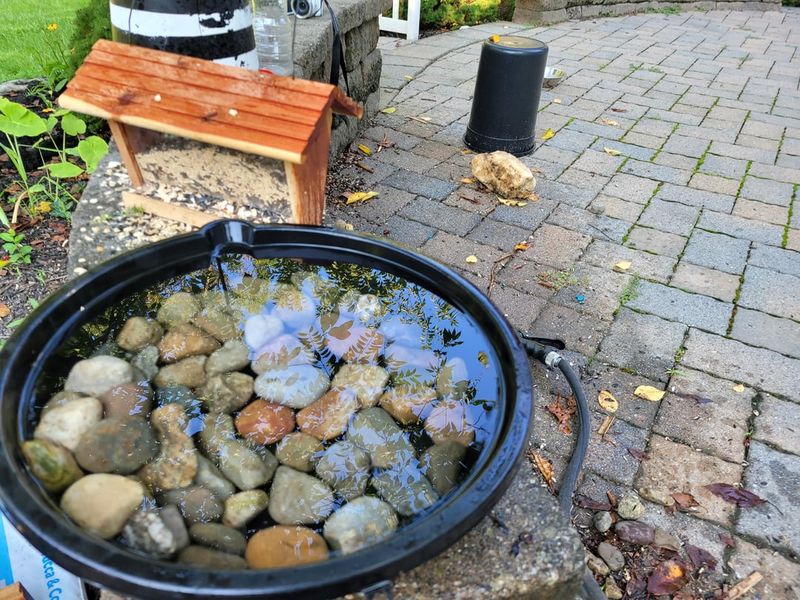
Wild birds need clean water for drinking and bathing, especially during Georgia’s hot summers. Connect a shallow basin to your rain barrel with a small gravity-fed tube that keeps the bird bath constantly filled with fresh water.
Position it where you can watch from a window as cardinals, bluebirds, and other Georgia natives visit throughout the day. The gentle trickling sound will attract birds while aerating the water to prevent mosquito breeding.
7. Handwashing Station For Gardeners
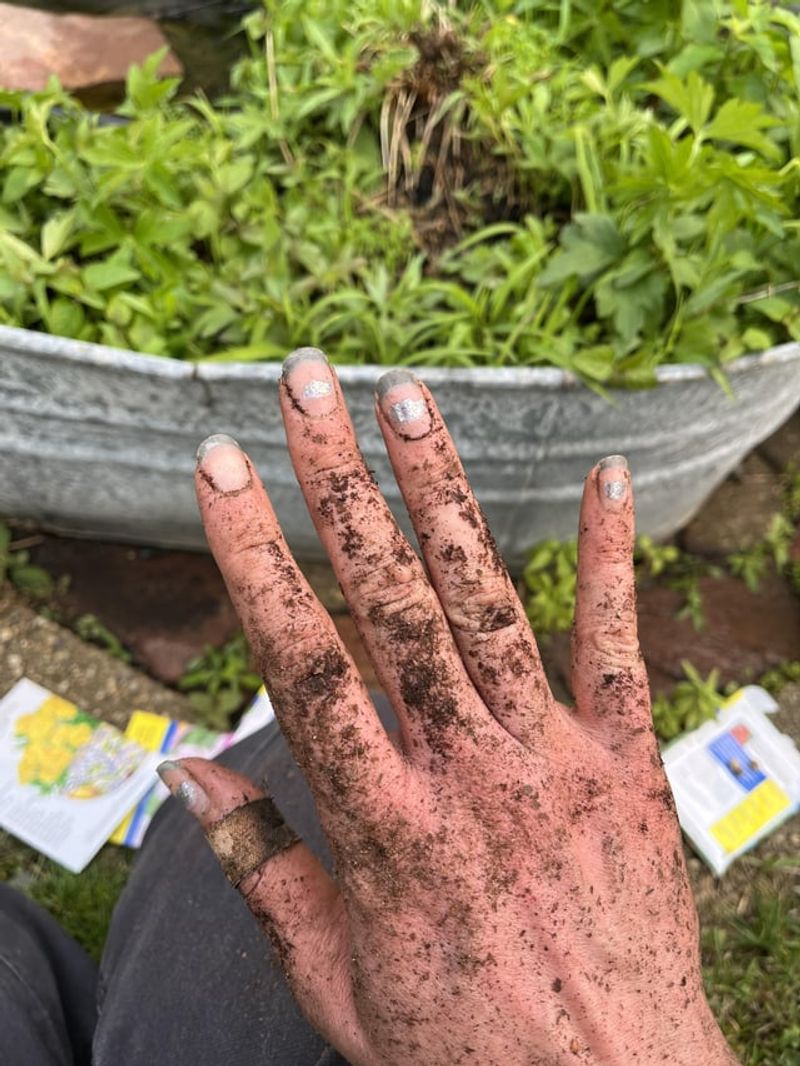
Install a simple soap dispenser and towel holder next to a rain barrel with an easy-turn spigot. This creates a convenient handwashing station right where you need it most – in the garden.
After pulling weeds or handling compost in Georgia’s rich soil, you won’t need to trek inside with dirty hands. Use biodegradable soap so the gray water can safely drain into nearby plants, giving them an extra drink.
8. Cool Your Greenhouse
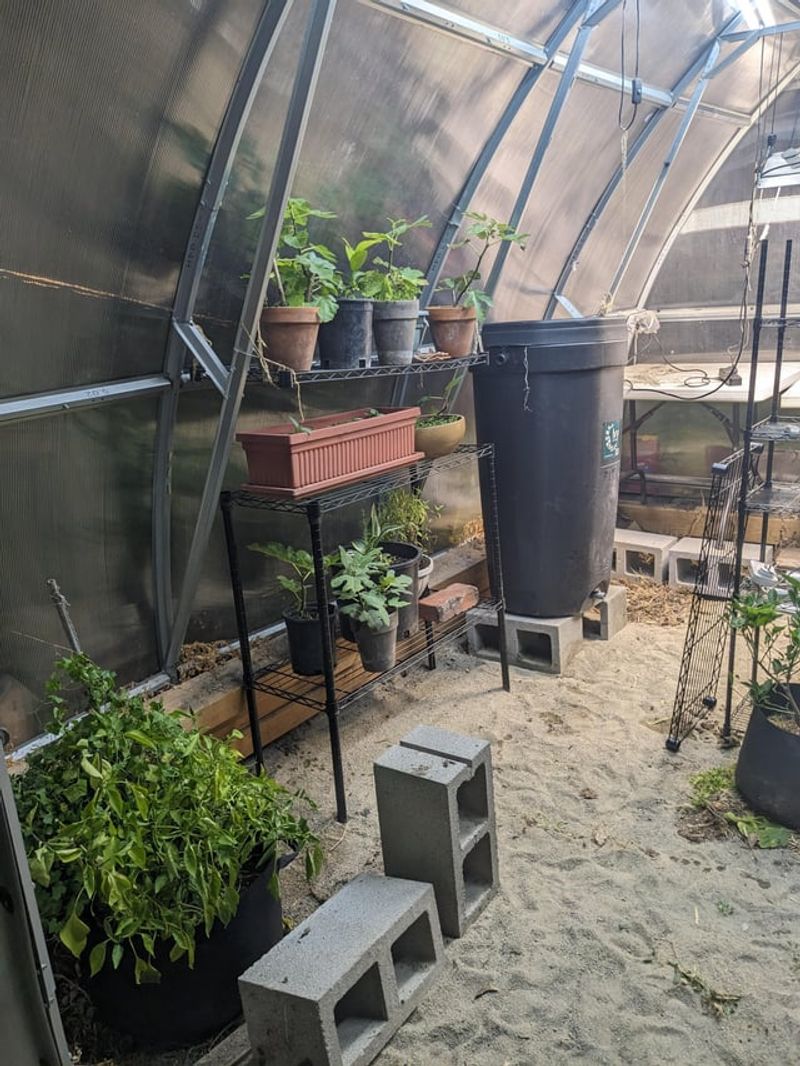
Georgia summers can turn greenhouses into ovens, but rain barrels can help moderate temperatures. Place several dark-colored barrels inside your greenhouse to absorb heat during the day and release it slowly at night.
The water acts as thermal mass, creating a more stable environment for seedlings and heat-sensitive plants. During extremely hot days, you can also mist plants with the collected rainwater to increase humidity and reduce heat stress.
9. Feed A Rain Garden
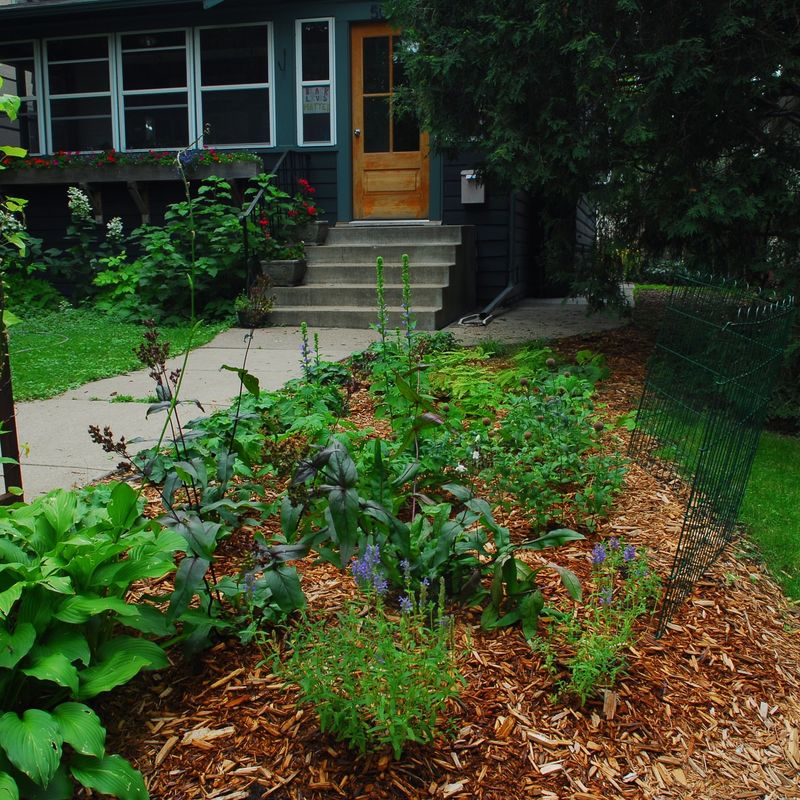
Direct overflow from your rain barrel into a specially designed rain garden filled with native Georgia plants that thrive in occasionally wet conditions. Species like Joe-Pye weed, cardinal flower, and swamp milkweed will flourish with this setup.
The rain garden captures excess water during heavy Georgia downpours, preventing erosion and runoff. As a bonus, these native plants attract pollinators like butterflies and hummingbirds, adding movement and color to your landscape.
10. Create Self-Watering Containers
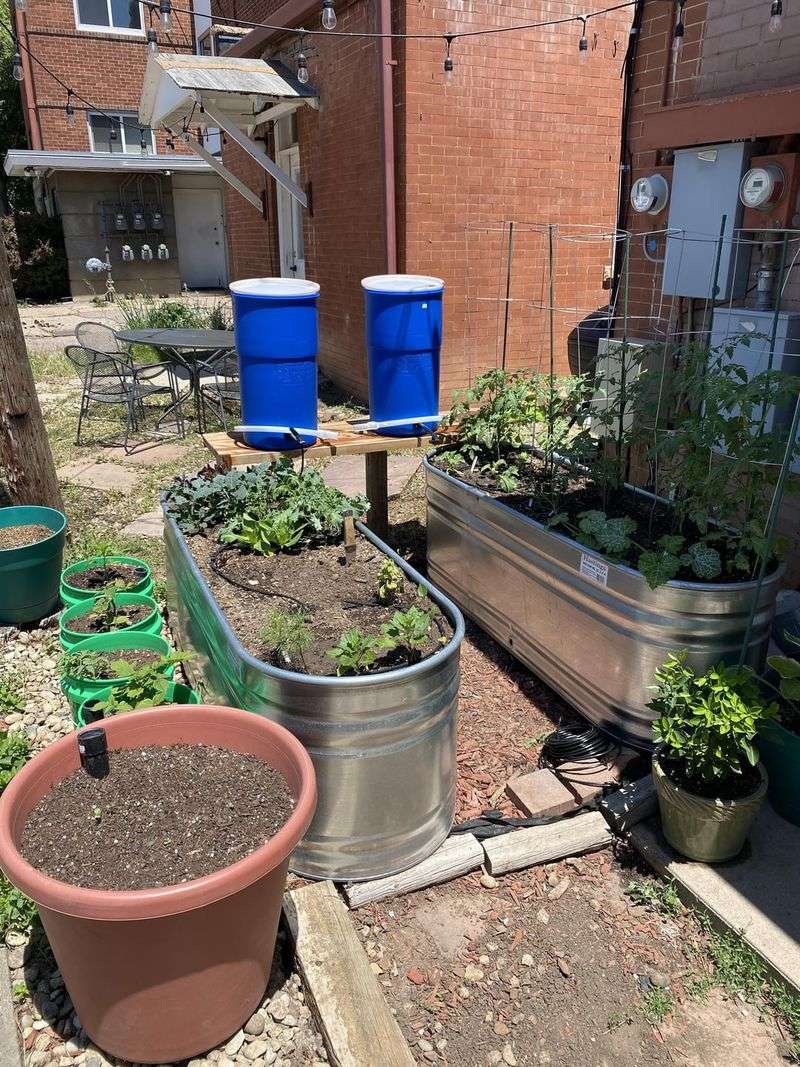
Connect small tubes from your rain barrel to reservoir-based containers around your patio. The water slowly wicks up into the soil, providing constant moisture for thirsty container plants without daily watering.
This system is perfect for Georgia gardeners who travel frequently during summer months. Your potted herbs, flowers, and vegetables will stay properly hydrated even during your absence, maintaining that perfect soil moisture level that container plants crave.
11. Fill A Dog Splash Pool

Georgia’s hot summer days can be tough on pets. Use rainwater to fill a shallow kiddie pool where your dog can cool off without wasting treated tap water.
The chlorine-free rainwater is gentler on your pet’s skin and coat than municipal water. After your dog enjoys a splash, use the used water to irrigate nearby shrubs or trees, making the most of every drop while keeping your furry friend comfortable during those humid Georgia afternoons.
12. Power a Fountain Display
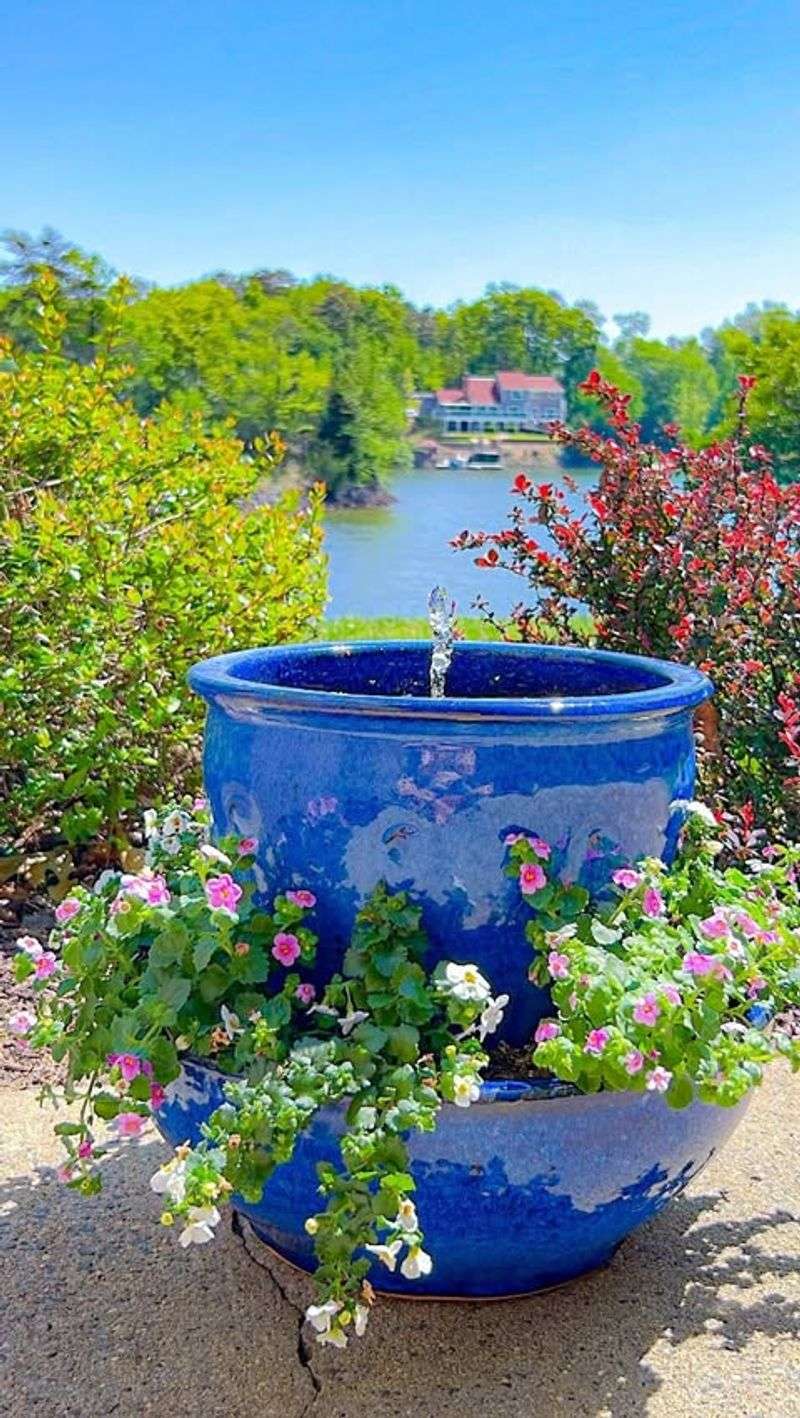
Create a recirculating fountain powered by collected rainwater. A small solar pump can lift water from your barrel to the top of a decorative fountain, where it trickles back down into the barrel.
The moving water catches sunlight and adds a gorgeous focal point to your Georgia garden. As an added benefit, the constant movement prevents mosquito larvae from developing in your stored rainwater, a common concern in Georgia’s warm climate.
13. Rinse Garden Harvests
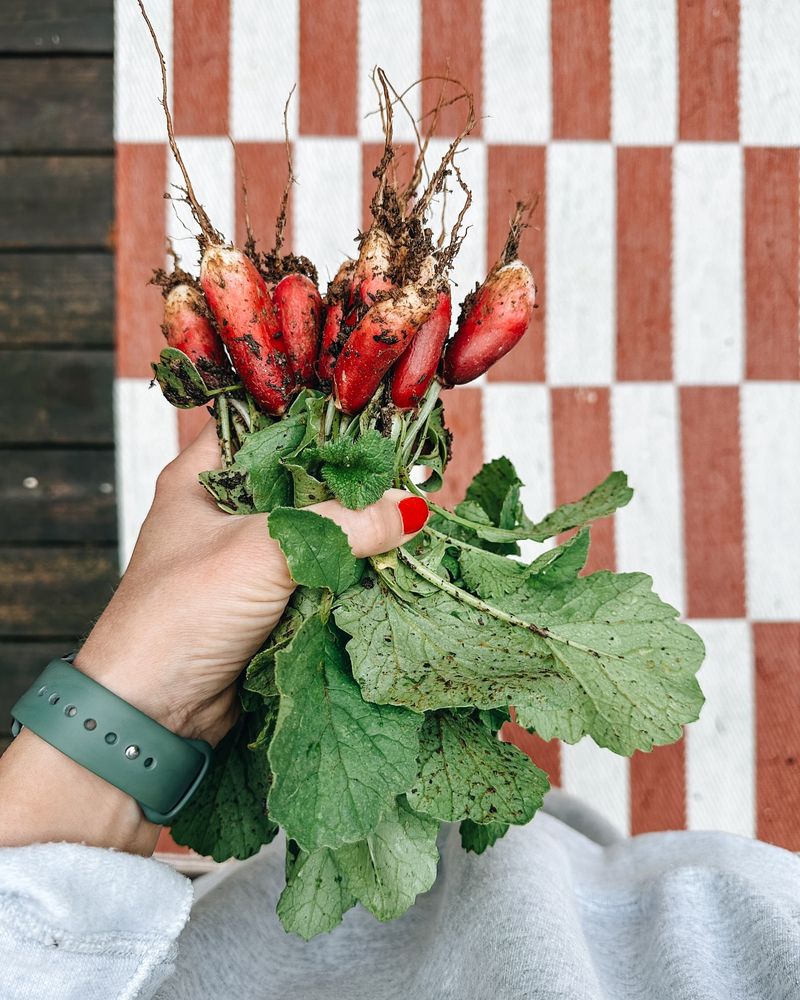
Set up a dedicated rain barrel near your vegetable garden with a wide basin underneath for washing just-picked produce. The chemical-free rainwater won’t leave residues on your homegrown vegetables and fruits.
Georgia’s long growing season means months of harvests that need cleaning. The nutrient-rich rinse water can then be directed right back into the garden beds, returning any soil and organic matter to where it belongs while conserving every precious drop.
14. Support Humidity-Loving Plants
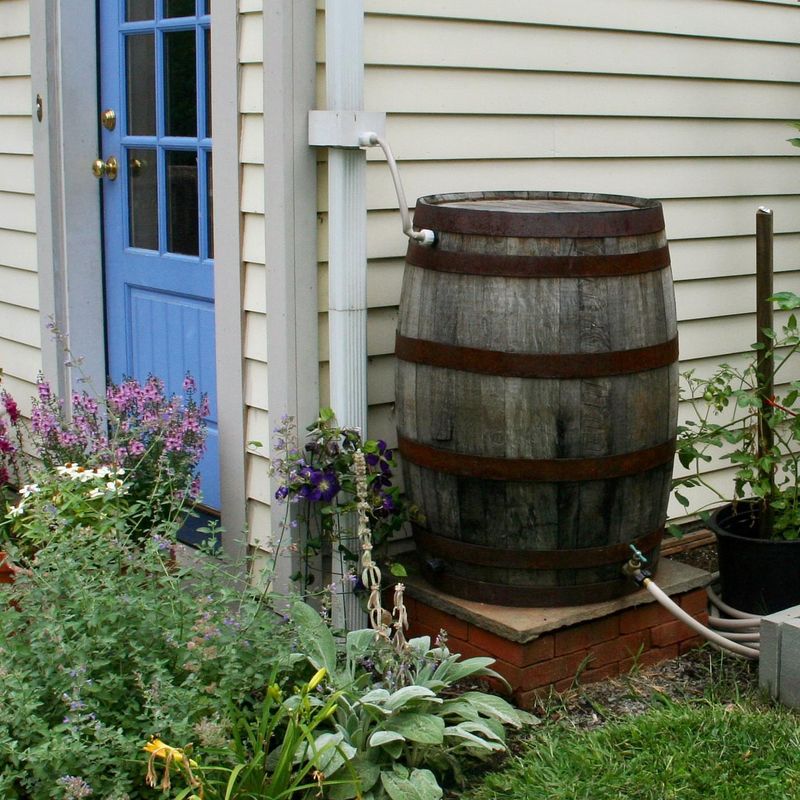
Create a special zone for ferns, hostas, and other shade-loving plants that thrive in humid conditions. Position a rain barrel with a slow-drip attachment above these plants to create a consistently moist microclimate.
Georgia’s hot summers can quickly dry out even shaded areas. The gentle drip from your rain barrel mimics the natural forest environment these plants evolved in. This setup is particularly effective for native Georgia woodland plants like trillium and wild ginger.
15. Manage A Compost System
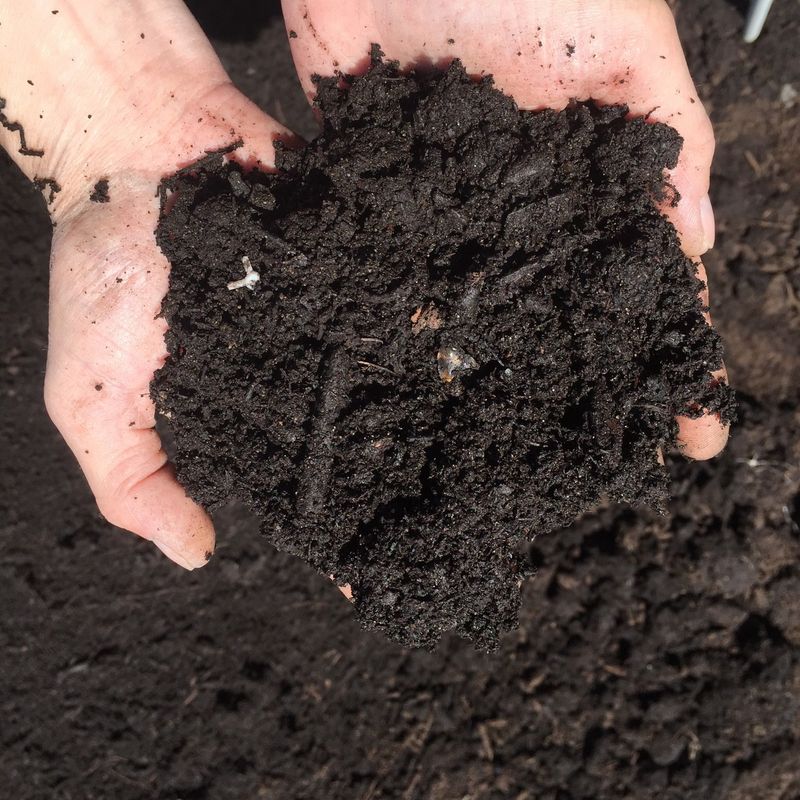
Keep your compost pile working efficiently by adding rainwater when it gets too dry. Georgia’s heat can quickly dehydrate compost, slowing down the decomposition process.
Install a rain barrel near your compost bin with a dipper for easy access. The beneficial microorganisms in your compost heap need moisture to break down garden waste. Maintaining proper moisture with collected rainwater speeds up the process, creating rich compost for your Georgia garden faster.

